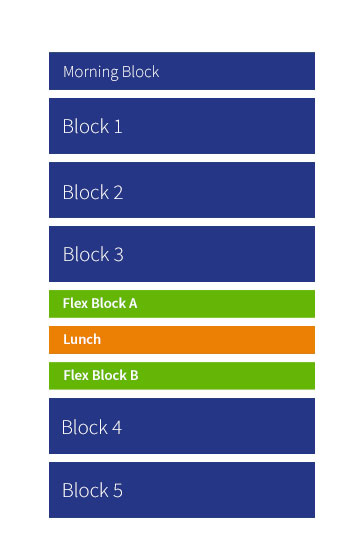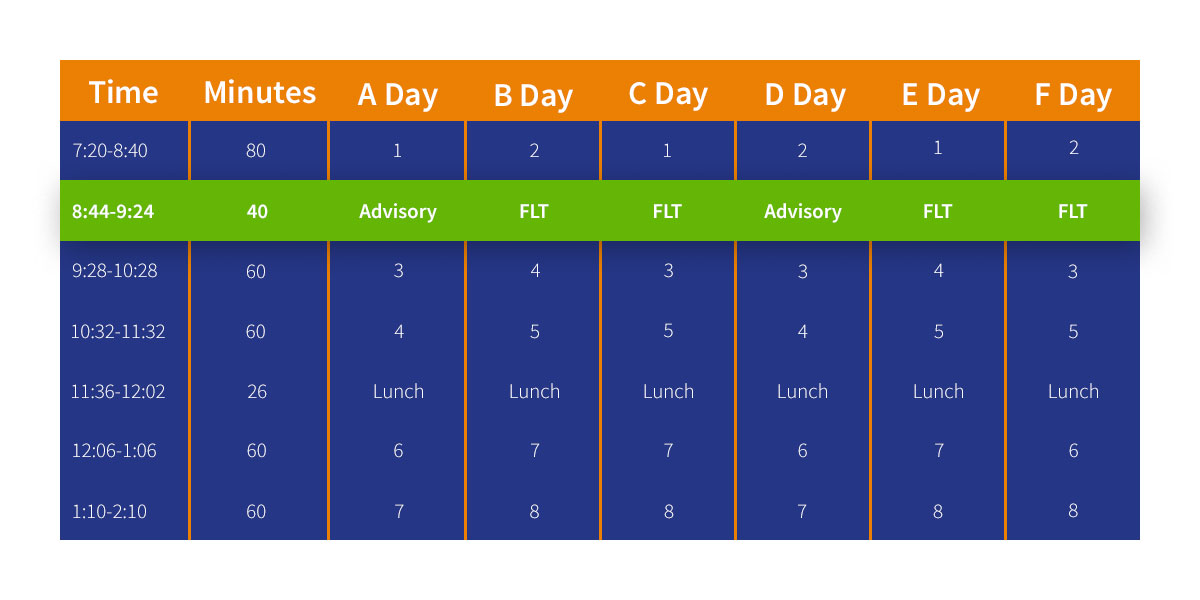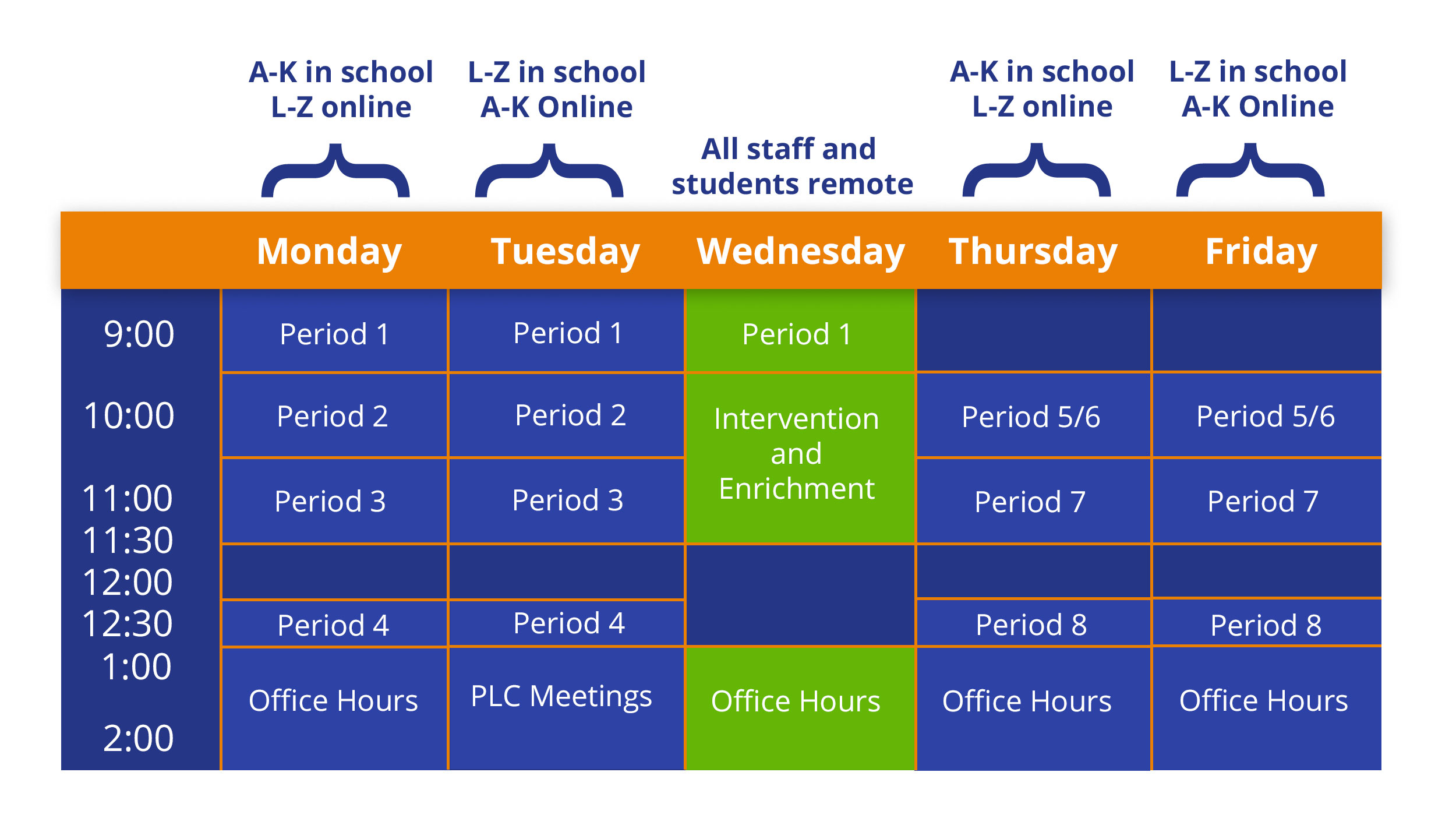Under Texas House Bill 4545, now updated by HB 1416, it’s required that students meeting certain criteria are given supplemental accelerated instruction, during the school day. This includes not only academically, but emphasizes their social-emotional needs as well.
For schools, this will mean that time needs to be spent with each student, or perhaps a small group, for enrichment, SEL, interventions, extra help and other in-school supports, without sacrificing needed grade-level instruction.
The HB 1416 bill means that many Texas schools have dedicated time towards identifying and meeting individual student needs. With an already stressful start to the school year, and packed school day, how can schools time to meet with students to give them the academic and social-emotional support they need?
It’s not an easy task, especially when this assistance needs to be provided without taking students out of instructional or elective classes. Some schools may decide to create time for accelerated instruction before or after school.
However, many schools and parents would like to reduce the logistics and added costs of before and after school academic demands. In addition, before or after school sessions aren’t necessarily the best option for students.
Why? What benefits are there for schools to consider providing accelerated instruction during the school day, and how can they do it?
Why Schedule Accelerated Instruction During the School Day?
Before or after school sessions for support may seem like the best way to keep accelerated instruction from interfering with essential, grade-level curriculum. But what could happen if this is only offered before or after school?
For many students, especially those who rely on bus transportation, have after-school jobs, or participate in extracurricular activities, getting to school early or staying late is out of the question. Unless a school extends the school day, or is able to change bus schedules and offer this support right before or after the start or end of the school day, many students will be left behind.
On the other hand, scheduling time for accelerated instruction in the middle of the day will allow schools to help all students who attend.
Many students struggled during the past year. Many suffered academically without in-classroom instruction, whether that is due to a lack of internet and technology access at home, the home environment, or typical in-person support of a teacher and fellow classmates.
Students who performed well academically may still have suffered mentally and emotionally. Even if a student doesn’t need time for accelerated instruction, they could still benefit from a time period dedicated to social-emotional support, or enrichment projects with peers.
Really, carving out time during the school day can ensure that students will get what they need. And for students who need accelerated learning, scheduling this time during the school day won’t put them at a disadvantage.
That being said, when a school schedule is already full, how can schools ‘make’ more time?
How to Create Time in the Master Schedule for Accelerated Instruction
Making adjustments to the master schedule is no small task. So it’s important for staff members to be on the same page, and understand what changes are being suggested, and how. To create time in the master schedule for accelerated instruction, educators can follow the approach taken by many schools who have created a flex block.
A flex block can also be referred to as a flex period, W.I.N. time, an activity period, and more. But essentially, schools use this time to meet student needs. If your school already has a flex block, you could use this for accelerated instruction.
To create a time period like this, many schools take a few minutes from each school block or period, and potentially slightly shorten lunches, to make a new period that is 30 minutes or so.
This can raise some questions and concerns — what about instructional time? Under HB 1416 it is required that accelerated instruction does not interfere with grade-level instructional time, but rather it should be in addition to instructional class time.
This is a valid concern, but here are some things to think about. Has your school identified essential, grade-level curriculum for students? When schools identify what is essential for students to learn, it can cut out time spent on less necessary things. At your school, could you slightly shorten class periods, by around 5 minutes, and still meet the state’s instructional minute requirements?
Here is another thing to consider: are students really missing out on class time? Creating a 30+ minute time slot for accelerated learning means that the students struggling in those subject areas will have time to get the help they need. On the other hand, the students who do not need extra assistance and already get it do not need that extra time.
Again, this way every student gets what they personally need. To learn more about how to create time in the school day for student supports, watch our video How Can You Create a Flex Block?.
Does this actually work? And what do these schedules look like? Check out some examples below.
Some Schedule Examples
At Enriching Students®, we’ve worked with schools across the country, including a number of Districts in Texas, who have been able to make time for intervention and support for students during the school day. Of course, if your school already offers advisory or flex periods, it may be possible to use this period of time for accelerated instruction.
For other schools who are looking to create time, below you will find examples of how schools have been able to shift how time in their master schedule is used. What’s great about these approaches is that they make time for intervention not just once a week, but in most cases multiple times a week, or every day.
Below, see an example of how time was shifted and a school can create time for intervention and support (in these examples referred to as a flex block or flex period) within a traditional, 4×4 block schedule, by taking a few minutes from each block. The overall length of the school day does not change.

Some schools may have more periods, and want multiple time slots for accelerated learning, and lunches. In the example below, a school runs a 5 block schedule, with two flexible intervention blocks that rotate for different students around their lunch period. These ‘flex blocks’ could easily be used as time for accelerated instruction.

Another schedule type is a rotating schedule. With this type of schedule, the classes a student attends will rotate throughout the week. Their time for accelerated instruction can occur at the same time, either every day, or interspersed a few times a week with advisory. In the example below, the school has an A-F day rotation, with two time slots for Advisory, and their intervention block ‘FLT’, which could be used for accelerated instruction.

What if school ends up going, at least partially, virtual? Below is an example from a school who still made time for intervention, via ‘Office Hours’ even while running a hybrid schedule.
This type of approach could be adopted by a Texas District that may need to have virtual accelerated instruction. Within Enriching Students, teachers can set up a Zoom or Google Meet link for their intervention courses.

Find more scheduling ideas on our page Different Types of Flexible Schedules.
Tips for Managing Accelerated Instruction Time
One you’ve created this time, how can you manage all the moving parts? Enriching Students® is a tool that helps schools do just that, by scheduling, taking attendance, and running reports for this time period.
In addition, Enriching Students® works with all major Student Information Systems as well as Clever, to ease the process of data import. And, students can have their own accounts to view their schedule and see where they are going for Accelerated Instruction, make requests to see a teacher, or even schedule themself if your school permits.
Learn how teachers can set up an Accelerated Instruction course, and schedule students into it in our blog post Scheduling Students for Accelerated Instruction, and visit our HB 1416 guide for more strategies.





